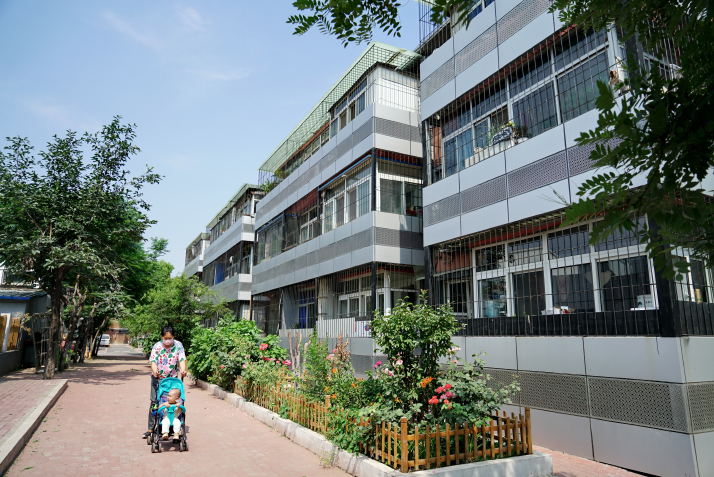| Business |
| A heated housing market and cool rentals show the need to continue reforms in real estate | |
|
|
 A view of Nanshan District in Shenzhen, Guangdong Province in south China, on March 27 (XINHUA)
As one of the Chinese cities with the most expensive housing, Shenzhen in Guangdong Province, south China, came under the spotlight in June when its second-hand house prices surged to over 70,000 yuan ($9,972) per square meter on average. It was higher than the prices in the other three first-tier cities—capital Beijing, financial center Shanghai and Guangzhou, also in Guangdong, according to a housing price list released by Securities Daily on July 4. However, the heated housing purchase prices have been accompanied by a cooling down rental market. Data from Zhuge Zhaofang, a China-based real estate big data and artificial intelligence platform, showed that rentals in the city dropped by over 2 percent month on month in May. The paradox is not exclusive to Shenzhen's housing market. Earlier this year, large-scale quarantine amid the novel coronavirus epidemic affected both property transactions and household income and expectations in the property market. After most cities in China eased epidemic containment measures, the housing market showed signs of recovery in the first half (H1) of this year as people's buying plans and investment gradually picked up. But while housing prices continue to rise, the epidemic has also caused a decline in rents. Li Yujia, chief researcher at Guangdong Property Policy Research Institute, told Beijing Review that the rising vacancy in rental housing and declining power of many people to pay high rents during the epidemic have forced property agencies to reduce rents. The differentiated performances of the housing and rental markets indicate that bubbles are mounting in the real estate industry. Whether the risks can be curbed depends on the market trend in the second half (H2) of the year, Zou Linhua, a researcher at the Chinese Academy of Social Sciences (CASS), told ThePaper.cn, an online Chinese news site. Opposite trends The suspension of work and production in the previous months caused investment growth and property sales to slow down but as the epidemic situation improved, housing demands drove the recovery of the market. Data from the National Bureau of Statistics (NBS) showed that commercial housing sales in terms of floor area totaled 487.03 million square meters in the first five months. While it was down 12.3 percent year on year, the drop narrowed by 7 percentage points from the January-April decline. Investment in property development inched down 0.3 percent year on year in the first five months, narrowing from the 3.3-percent decline during the January-April period. Home prices in 70 major Chinese cities mostly showed month-on-month increases in May. According to the NBS, new home prices in Beijing, Shanghai, Shenzhen and Guangzhou rose by 0.7 percent month on month in May, 0.5 percentage point higher from April. In May, the second-tier cities saw a month-on-month increase of 0.6 percent in new home prices, up 0.1 percentage point from the previous month. New home prices in third-tier cities also rose by 0.7 percent month on month, compared with a 0.6-percent increase in April. The second-hand house market has also recovered from the epidemic-induced fallouts. Over 230 cities saw higher prices of second-hand houses in June compared with 2019-end. Chen Long, an analyst at Zhongtai Securities, told China News Service that eased monetary policies have led domestic housing prices to rise in the short term, especially in regions with limited housing in advantageous locations. To support property enterprises and boost housing sales during the epidemic, local governments have increased supply of residential land, eased restrictions on household registration policies and introduced policies to attract more talents to settle down in their cities, Zhang Bo, chief analyst at 58 Anjuke Real Estate Research Institute, told Securities Journal. Although a survey conducted by the Union Bank of Switzerland (UBS) Evidence Lab in April showed that the housing purchase intention of its 3,322 Chinese respondents in the next two years declined sharply from 35 percent a year ago to 21 percent, recovering economic activities and supporting government policies have enabled property enterprises to tide over difficulties. Most of the top developers have seen their sales revenue bounce back and return to last year's level as the Chinese economy continues to recover. A report by China Index Academy, a property research institution, said China's top real estate developers saw stable sales in H1. In January-June, the average sales volume of the top 100 real estate developers that account for 57.5 percent of the total market share reached 51.21 billion yuan ($7.25 billion). Thirteen real estate companies saw their sales top 100 billion yuan ($14.2 billion) in the same period. The annual sales of the top 100 developers this year is estimated to grow by up to 9.6 percent. However, data from the National Academy of Economic Strategy of CASS in mid-June showed that rental prices in the four first-tier cities all declined in May. The monthly average housing rental price in 18 key cities across China was 43.7 yuan ($6.2) per square meter in May, down 7 percent year on year, RealData, a China-based property information provider, said. As Zhang analyzed, rental prices are largely affected by demand. Besides the epidemic-induced work suspension and decline in rental affordability, students are another factor. As more college graduates are enrolling for their master's degree without taking up jobs, there is weakened housing rental demand from graduates this year. However, in July a large number of students will graduate from college, which can still be the key driving force for housing rental growth in the short term. "Therefore, the market is expected to revive in the third quarter," he said.  A renovated residential community in Lunan District in the city of Tangshan, Hebei Province, north China, on June 20 (XINHUA)
Stabilizing the market Although the price of second-hand houses in many cities has risen rapidly, Xu Xiaole, chief analyst with RealData, stressed that the rise is only temporary for housing supplies remain large and the market is recovering. This will help avert massive and protracted increase in housing prices. "The housing market will neither see bursting growth even though the piled-up demands from the first quarter have been released, nor drop sharply, considering the downward pressure on the domestic economy," Xu told China News Service, suggesting that stable performances can be expected in the following months. No matter how the market performances change, the government will still focus on ensuring housing for living instead of speculation and keep reining in the market in H2, Kuang Weida, Director of the National Academy of Development and Strategy, Renmin University of China, told People's Daily. The UBS research said with consistent control on the property market, renovation can help drive property demands. The government has announced plans to renovate 7 million old-town homes this year, double the number in 2019, which could shore up property investment. It predicted that property investment will stay resilient, growing at 2-4 percent this year. While making the housing market cool down, problems emerged in the rental market in recent years and have not been addressed yet. Analyses from Zhuge Zhaofang showed that many housing rental agencies suffered losses in 2019 for attempting to acquire housing resources by paying house owners more money than the rental received. This strategy backfired, forcing many small agencies lacking funds to exit the market. Liu Xin, President of Guangdong Apartment Management Association, told a forum on the housing rental industry held in Shenzhen on June 12 that rental agencies should explore new business modes and build up their brand image instead of seeking rapid development in a short period, which disturbs the order in the industry. Li told Beijing Review that the decline in rentals can make the market sentiment more rational. "Since rental demand tends to remain stable and the impact of the epidemic on people's income and demands remains, rental agencies need to improve services to better retain users," he said. (Print Edition Title: Blow Hot, Blow Cold) Copyedited by Sudeshna Sarkar Comments to lixiaoyang@bjreview.com |
|
||||||||||||||||||||||||||||
|
